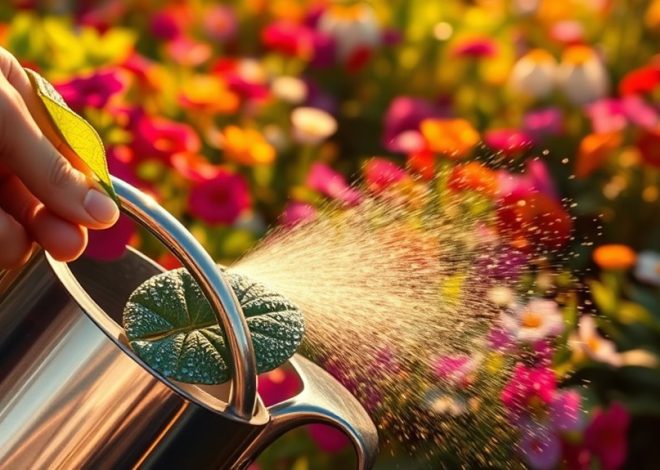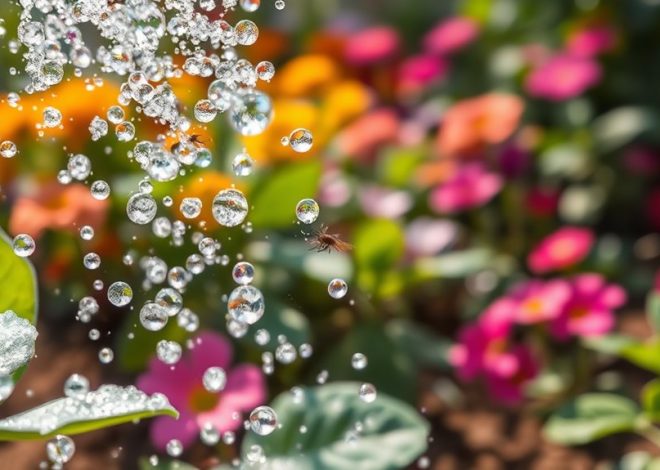
Watering Mistakes That Might Be Killing Your Garden
Watering Mistakes That Might Be Killing Your Garden
You might find it ironic that despite your best intentions, your garden could be suffering from simple watering mistakes. Overwatering, timing issues, and inconsistent practices can lead to serious consequences for your plants. If you think you’re doing everything right, you might be overlooking critical factors like soil type and specific plant needs. Understanding these pitfalls can transform your garden’s health, but are you ready to uncover what might be going wrong?
Key Takeaways
- Overwatering is a common mistake that leads to root rot; always check soil moisture before watering.
- Watering in the morning is ideal, while midday watering can cause rapid evaporation and evening watering may promote fungal diseases.
- Inconsistent watering practices result in plant stress, causing yellowing leaves and reduced growth; maintain a regular schedule.
- Neglecting soil type and drainage can hinder water absorption; test soil texture and drainage to optimize watering.
- Different plants have varying water needs; adjust watering frequency based on their growth stage and seasonal changes.
Overwatering: The Silent Killer
How often do you really think about the amount of water your plants need?
Overwatering is a common watering mistake that can lead to root rot and other detrimental issues.
You might think more water equals healthier plants, but that’s not true.
Each plant has unique moisture requirements, and too much water can suffocate roots, depriving them of oxygen.
Always check the soil moisture before watering; stick your finger an inch deep.
If it’s damp, hold off on watering.
This awareness can save your plants from the silent killer of overwatering and promote a thriving garden. Additionally, overwatering can lead to root rot and result in the decline of your plants’ overall health.
Watering at the Wrong Time
Watering at the wrong time can lead to evaporation losses or fungal diseases.
Here’s what to keep in mind:
- Morning Benefits: Watering early helps plants absorb moisture before the sun heats up.
- Avoid Midday: The sun’s intensity can cause water to evaporate quickly, leaving roots dry.
- Evening Risks: Watering late can lead to prolonged dampness, encouraging mildew and rot.
Additionally, understanding common watering mistakes can help you refine your gardening technique for better plant health.
Inconsistent Watering Practices
Inconsistent watering practices can undermine all your efforts in maintaining a healthy garden. If you water too frequently one week and then forget the next, your plants suffer. They can’t adapt to these erratic conditions, leading to stress and reduced growth. Establishing a consistent watering schedule is crucial for preventing overwatering or underwatering and ensuring your plants receive the right amount of moisture.
| Effect of Inconsistent Watering | Symptoms | Long-term Impact |
|---|---|---|
| Overwatering or underwatering | Wilting leaves | Stunted growth |
| Root rot or drought stress | Yellowing foliage | Plant death |
| Nutrient deficiency | Poor yields | Weakened plants |
Establish a consistent schedule, and your garden will thrive.
Neglecting Soil Type and Drainage
Soil quality plays a crucial role in the success of your garden, yet many gardeners overlook its importance. Neglecting soil type and drainage can lead to waterlogged roots or nutrient deficiencies. To ensure optimal growth, consider these key factors:
- Soil Texture: Understand whether your soil is sandy, clayey, or loamy, as each affects water retention differently.
- Drainage: Test for drainage issues by checking how quickly water absorbs; poor drainage can suffocate roots.
- pH Levels: Regularly test your soil’s pH to maintain nutrient availability for plants. Additionally, conducting a simple DIY soil test can provide valuable insights into your soil’s health and nutrient content.
Addressing these aspects will enhance your watering strategy and promote a thriving garden.
Ignoring Plant Needs and Growth Stages
When you overlook the specific needs and growth stages of your plants, you risk stunting their development and diminishing your garden’s overall health.
Different plants require varying amounts of water based on their life cycle.
Seedlings need light, frequent watering, while mature plants may thrive with deeper, less frequent irrigation.
Additionally, seasonal changes affect water requirements; during hotter months, you’ll need to increase hydration.
Always observe your plants for signs of stress—wilting or yellowing leaves indicate improper watering.
To ensure successful growth, establish an effective plant watering routine that takes into account each plant’s unique requirements.



